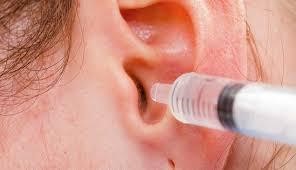Understanding Depression is essential in dealing with its symptoms and causes. You can also find ways to deal with it and prevent it. If you have depression, the first step is to seek help. Various types of depression treatment exist. These methods include talking therapy and medication. A medical professional will determine whether you have depression and will prescribe appropriate treatment.
Symptoms
Depression is a common mental health disorder, treatment and therapy for depression is widely available. About 80% of people with depression respond well to therapy, and almost all of them will experience relief from symptoms. If you’re concerned that you or a loved one may suffer from depression, it’s essential to seek professional help as soon as possible. Your health professional will perform a comprehensive diagnostic evaluation, including an interview and physical examination. They may also conduct blood tests to rule out any underlying medical conditions. These tests can help your doctor rule out a medical cause of depression, which can relieve depression-like symptoms. Your evaluation will also focus on your medical and family history and your environment. The main symptoms of depression are a decrease in energy and general sadness. People with depression may also experience sleep disturbances and aches and pains. Some may even refuse to go to school or work because they feel hopeless.
Causes
There are many causes of depression, including physical illness and injury, chronic or long-term health issues, and significant life changes. A physician may recommend mental health treatment as part of the overall treatment. Depression can also be a side effect of certain drugs and alcohol. While these substances may temporarily alleviate symptoms of depression, they can worsen the condition. Some people are also more prone to depression than others. Individuals with low self-esteem or those who are constantly subjected to criticism are more likely to experience this illness. People with depression experience an overriding sense of sadness. They become unable to concentrate, have trouble sleeping, and lose interest in daily activities. Some even have trouble getting out of bed. They are exhausted and lack energy, and may even think about suicide. Fortunately, it is not impossible to treat depression and lead a happy and productive life. Psychotherapy can help to alleviate the symptoms. Genetics may play a role in determining depression risk, but many other factors can also affect someone’s likelihood of developing depression. Various studies have shown that people with low self-esteem, poor self-esteem, and perfectionist tendencies are more likely to develop depression. The most common personality trait associated with depression susceptibility is neuroticism. This trait indicates the degree to which the brain’s negative affect system is active.
Treatment
Fortunately, treatment for depression is available and effective. Depending on the severity of your depression, your healthcare provider will determine the best treatment plan. For mild forms of depression, lifestyle changes and regular exercise may be enough to alleviate symptoms. Your healthcare provider may refer you to a psychiatrist for more severe cases. The sooner you begin treatment, the sooner you can expect results. Psychotherapy is one of the most common forms of treatment for depression. It can help you understand the symptoms of depression and how to help your loved one cope. Your family can help by providing a supportive environment for your loved one. You can also limit access to certain items that can trigger feelings of depression.
Prevention
Prevention of depression requires a multifaceted approach. The prevention strategy should include prevention interventions that target specific high-risk populations. These interventions should also address cost-effectiveness and dissemination in community settings. Some promising interventions have already demonstrated efficacy in studies, but more research is needed. In addition to focusing on depression, prevention research should explore comorbid disorders to determine the optimal timing and targeting of preventive interventions. The authors summarize published literature relevant to estimates of the economic burden of depression in youth. They find that the burden of depression among adolescents is still poorly understood. This is partly due to the lack of data on the economic burden of youth depression. The authors also emphasize the challenges of assessing depression in adolescents. For these reasons, prevention efforts should include a multi-dimensional approach to target risk factors, such as family history and genetic vulnerability. Early recognition and intervention of depression are vital in preventing multiple episodes of depression during adulthood. In addition, early intervention of mood deflection may also help prevent relapse of depression in later life. Moreover, studies show that the onset of mental disorders during childhood is associated with impaired functioning in various domains, including cognition. Further, these mental disorders often persist throughout life.















+ There are no comments
Add yours